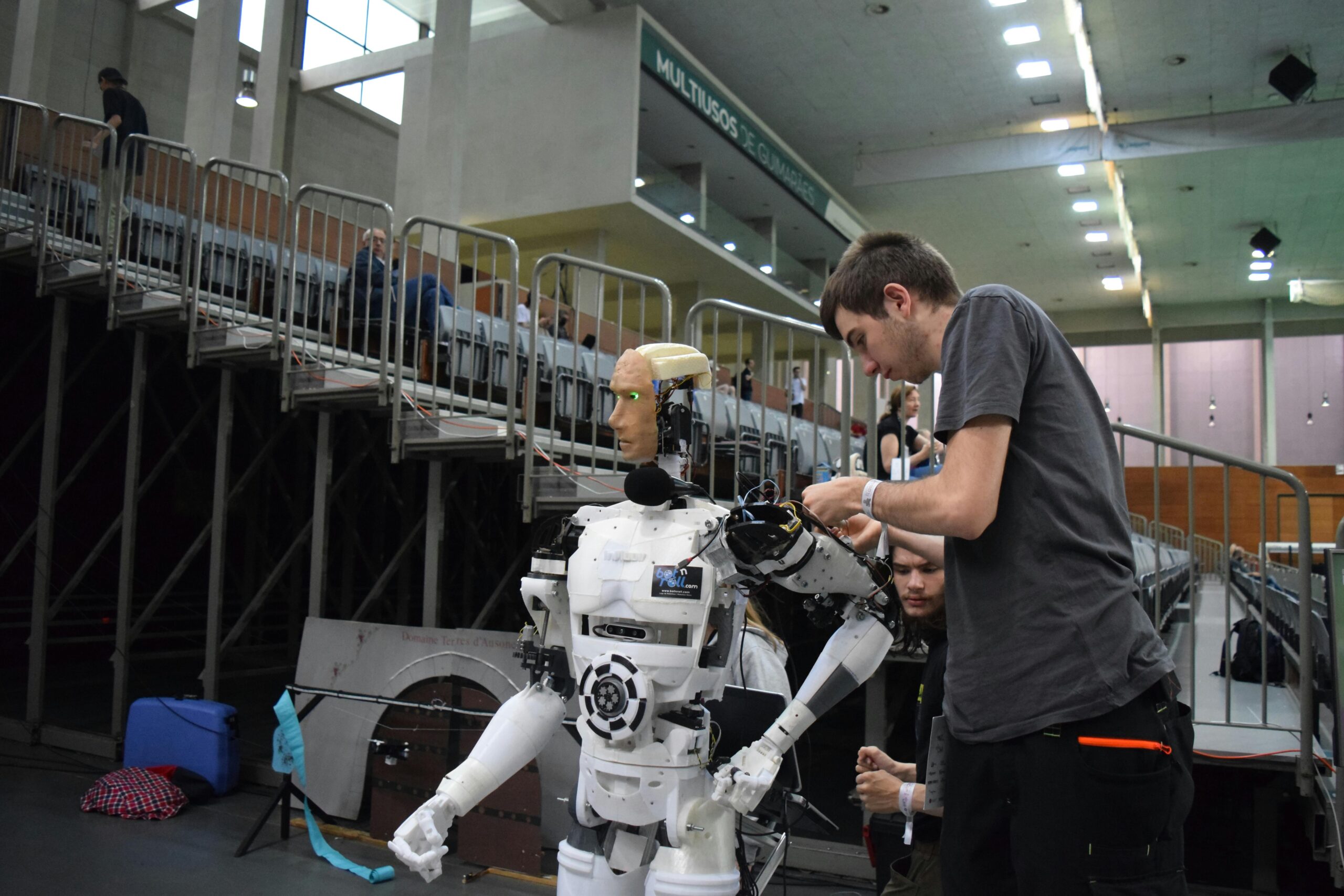AI in Education, Artificial Intelligence (AI) is revolutionizing education by creating innovative ways to personalize learning and more. This technology enhances educational experiences, making them more tailored, efficient, and effective.
Personalized Learning: AI has the capability to analyze vast amounts of data, enabling highly customized learning experiences. By tracking student performance and learning habits, AI-driven platforms can modify content to meet individual needs. For instance, if a student struggles with a particular math concept, AI can provide additional resources or alternative explanations to help them grasp the topic more effectively. This personalized approach ensures that every learner receives the support necessary for success.
Adaptive Assessments: AI supports the creation of adaptive assessments that adjust in real-time based on a student’s responses. This flexible testing method offers a more precise evaluation of a student’s skills and understanding, delivering targeted feedback and modifying difficulty levels to match their abilities.
Intelligent Tutoring Systems: AI-powered tutoring systems offer students personalized assistance outside of regular class hours. These systems can mimic one-on-one tutoring by providing immediate feedback, answering questions, and guiding students through problem-solving, similar to having a personal tutor.
Administrative Efficiency: AI also streamlines administrative tasks such as grading and scheduling. Automated grading systems reduce the burden on educators, allowing them to focus more on engaging teaching. AI can analyze trends in student data to optimize class schedules and resource allocation, improving overall efficiency.
Enhanced Learning Resources: AI enhances learning materials through interactive content and immersive experiences. Virtual reality (VR) and augmented reality (AR), powered by AI, create engaging simulations and scenarios that enrich the learning environment, making complex concepts more accessible and easier to understand.
Ethical Considerations of Using AI in Education
The coordination of simulated intelligence in schooling raises a few moral worries. An essential issue is information protection, as simulated intelligence frameworks frequently handle delicate understudy data. It is vital to lay out hearty information insurance gauges and follow security guidelines to keep away from abuse and information breaks.
Another significant concern is algorithmic predisposition. Assuming that simulated intelligence frameworks are prepared on one-sided datasets, they may coincidentally support existing disparities, prompting unreasonable results for specific understudy gatherings. Standard reviews and upgrades of simulated intelligence models are fundamental to alleviate these predispositions and guarantee decency. Straightforwardness and responsibility assume a key part in encouraging trust.
Partners should grasp how simulated intelligence frameworks show up at choices and who is liable for those decisions. Creating moral rules and oversight systems is important to ensure that artificial intelligence advances are utilized capably and evenhandedly in instructive conditions. Tending to these moral difficulties is fundamental for saddling the positive capability of computer based intelligence in schooling.
Addressing Cultural Differences in AI Ethics Discussions
Tending to social contrasts in artificial intelligence morals conversations requires a nuanced and comprehensive methodology. Comprehensive exchange is vital; including different social points of view guarantees that moral rules mirror many qualities and practices.
Drawing in with partners from different foundations recognizes socially unambiguous worries and inclinations. Worldwide coordinated effort is additionally fundamental. Worldwide collaboration can encourage shared principles and best practices while regarding social variety. Laying out structures that oblige different moral perspectives makes all the more all around OK artificial intelligence morals strategies.
Nearby transformation of moral rules is important to address local and social varieties. While worldwide standards can give an establishment, adjusting strategies to neighborhood settings guarantees pertinence and viability. Training and mindfulness assume a part in spanning social holes. Advancing multifaceted comprehension and awareness in man-made intelligence morals conversations can improve shared regard and participation. By incorporating assorted viewpoints, we can foster more impartial and socially mindful man-made intelligence frameworks.
